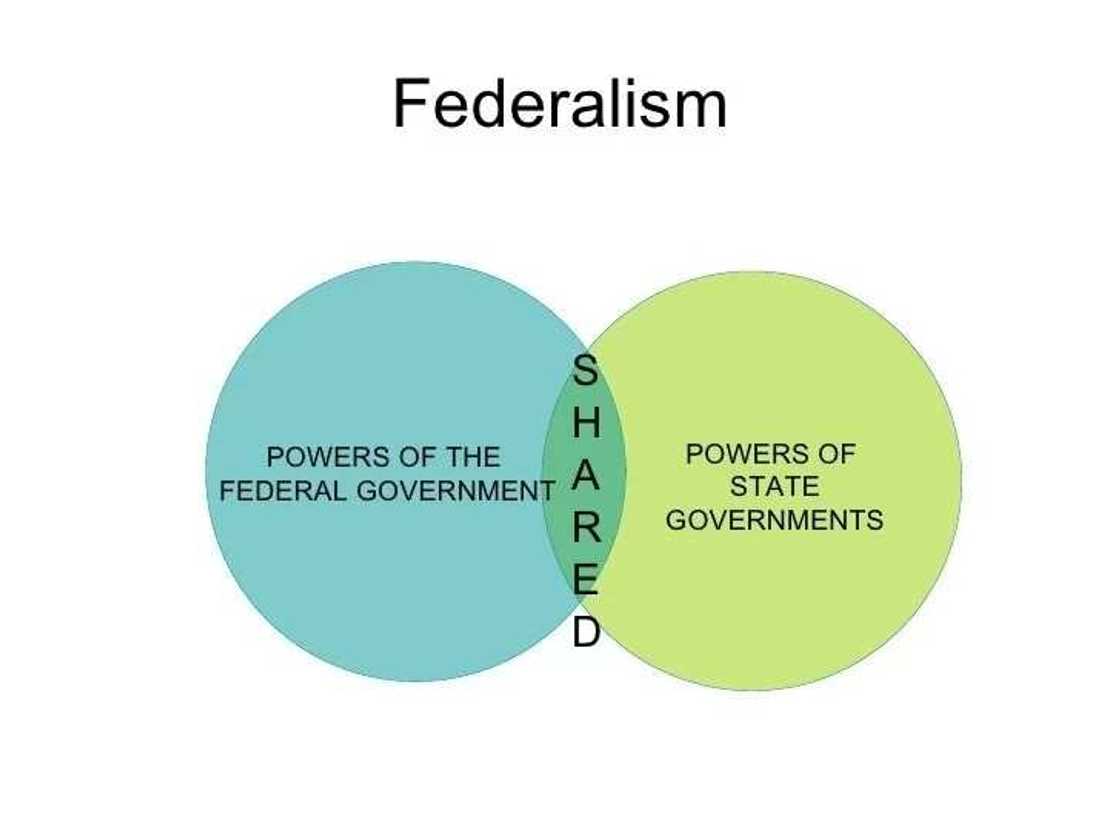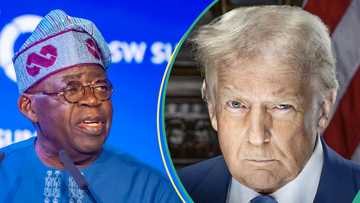Major features of federalism in Nigeria
The concept of federalism is based on the recognition of the Federal structure of a country as the most preferred one, and the desire to combine multiple states into one, or to convert the existing unitary state into a federal one. In this article, we will take a look at the concept of federalism.

What is federalism?
Federalism is a type of government system based on the concept of federation. Federation is a type of state structure where its parts are considered public entities. However, these entities do not possess state sovereignty (as in the case of a confederation), but they have the widest possible powers in their internal politics. They are also called subjects of the Federation.
Russia, USA, Canada, Australia, Germany, Austria, Mexico, Brazil, Belgium, Switzerland, as well as Nigeria, are all Federal states.
READ ALSO: What is federalism in the Philippines
Features of federalism
- The presence of constituent parts called republics, states, etc.
- The relations between the federation and its entities are governed by the Federal Constitution.
- Foreign policy activities are conducted by the federal government on behalf of all entities.
- The bicameral structure of the federal parliament where one is the organ of the federal government, and the other is representing the interests of the federation (this is a mandatory feature of a federal state).
- The regions may issue their own constitution, decrees and other normative-legal acts that will be legal in their territory on a par with the federal constitution and federal laws.
- The subjects of the federation can have their own flags, emblems anthems and all other signs of the state, except state sovereignty.
- The subjects of the federation cannot be independent subjects of international relations.
The types of federations in other countries

According to the constitutional-legal status of subjects we can define:
- Symmetrical federations with equal legal status of subjects (United States, Germany, Austria)
- Asymmetric federations
The features of the formation:
- Territorial (geographical, e.g USA and Germany)
- National (by ethnicity, e.g Czechoslovakia and Yugoslavia)
- Combined (containing traits of the first two, e.g the Russian Federation)
According to the types of formation:
- Constitutional which is based on pre-existing unitary state (and sometimes Empire), e.g Russia, Germany and Brazil.
- Treaty based on a conclusion of a treaty between independent states ( e.g USA and Switzerland).
According to the degree of centralization:
- Centralized (Russia and Germany)
- Decentralized (Switzerland, which continues to call itself a Confederation, but in fact has long been a decentralized Federation).
Another type is the "soft federation," where the entities have the free right to secede from the state (secession).

READ ALSO: Compare and contrast Nigerian and American Federalism
It is believed that a federal system should correspond to these major features of federalism:
- The federal government (the government) has the right to exclusively control its foreign policies.
- The entities of the federation are not allowed to secede from the federation, or to unilaterally terminate links with the national union (federation).
- The federal government can use its power independently and conduct its will without the direct approval of the states.
- No amendments can be made to the federal constitution without the approval of the entities of the federation.
- The federal government has no power to unilaterally change the borders of the federation.
- State power is divided between the federal government and the governments of the states of the federation.
- The main legislative body of the country should be bicameral, and the subjects of the federation should have equal representation at least in one of its chambers.
- The court should be organized according to a dual principle: each level has its own court to ensure the effectiveness of the laws.
- The federal court interprets the constitution and can resolve conflicts between the federal government and the governments of the entities of the federation.
Features of Nigerian federalism

Inter-ethnic rivalry: we all know that Nigeria is comprised of a diverse group of people coming from different ethnic groups, and the rivalry between them can become a serious problem. In Nigeria, we see that different groups of people from different geopolitical regions seek power, and sometimes this can lead to disagreements and ethnic conflicts between the parties involved. We can consider the lack of cohesion and the inability of parties to accept defeat in order to promote national peace and unity as one of the main reason for ethnic rivalry in Nigeria.
- Distribution of income: income distribution is another problem faced by federalism in Nigeria. The allocation of income refers to the formula used in distributing the financial resources of the country between different levels of government, whose main goal is to increase economic growth and development. However, money is not always distributed the way it should be, which also leads to certain problems.
- The question of minorities and state creation: The multi-ethnicity of Nigeria has led to the problem of minorities, which is considered one of the major problems hindering the development of the nation.
- The question of division: inter-ethnic rivalries in Nigeria constantly hinders development in the country. The question of separation is a major factor that violates federalism in Nigeria, as well as a way to influence the growth and development of the country.

Read also
Elections in Nigeria: Akpabio speaks on urgency of completing electoral reforms, gives reason
The prospects of federalism in Nigeria

- Economic stability: federalism, if properly applied, will lead to economic bloom in Nigeria. The idea of federalism in Nigeria is to achieve economic development and to establish an efficient administration. Federalism will lead to stability in the economy and will eliminate any form of crisis that may occur as a result of ethnic competition.
- Political stability: one of the motives for federalism is to promote unity and to force the government to be closer to the people. Federalism was born from the idea of peaceful coexistence of citizens, stability, and cohesion to promote national integration.
- National integration: it is impossible to overstate the importance of national integration in economic development. Federalism is about national integration and it creates cohesion and unites the citizens of the country. It will eliminate the problem of separation, ethnic rivalry, and fear of domination of minorities.
- Eliminating the problem of uneven distribution of income: with the proper application of federalism, the problem of uneven distribution of budgetary allocations by the federal government will be eliminated, ensuring that the distribution of income in different regions is not politicized.
The issues and prospects stated above represent the features of federalism in Nigeria. However, to promote peace and stability in the country, we should all be united and work together to accomplish our dreams of a better Nigeria.
READ ALSO: Relationship between the three tiers of government in Nigeria
Source: Legit.ng






